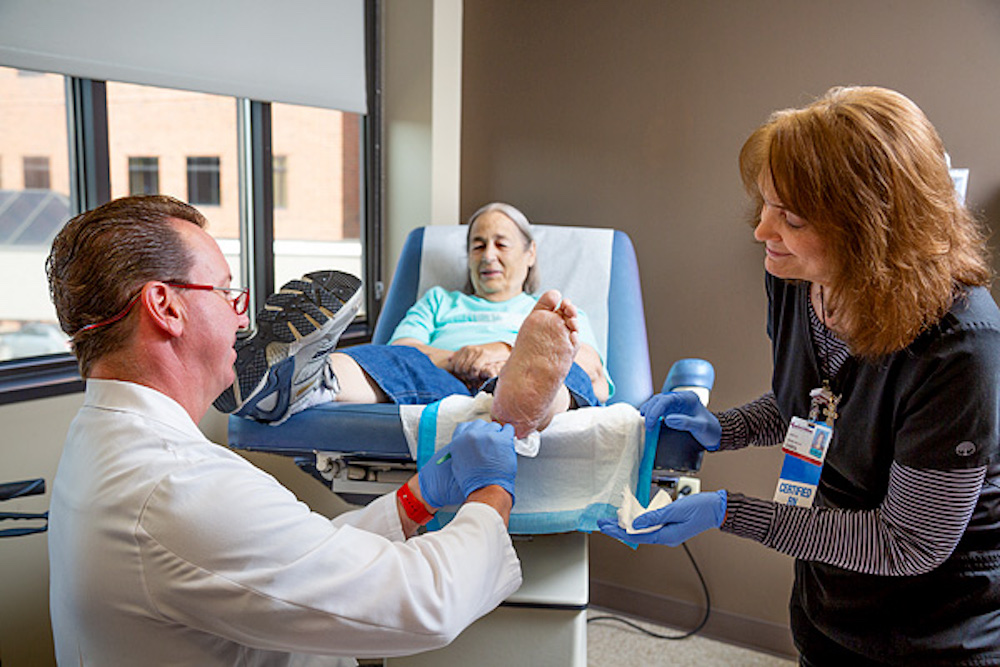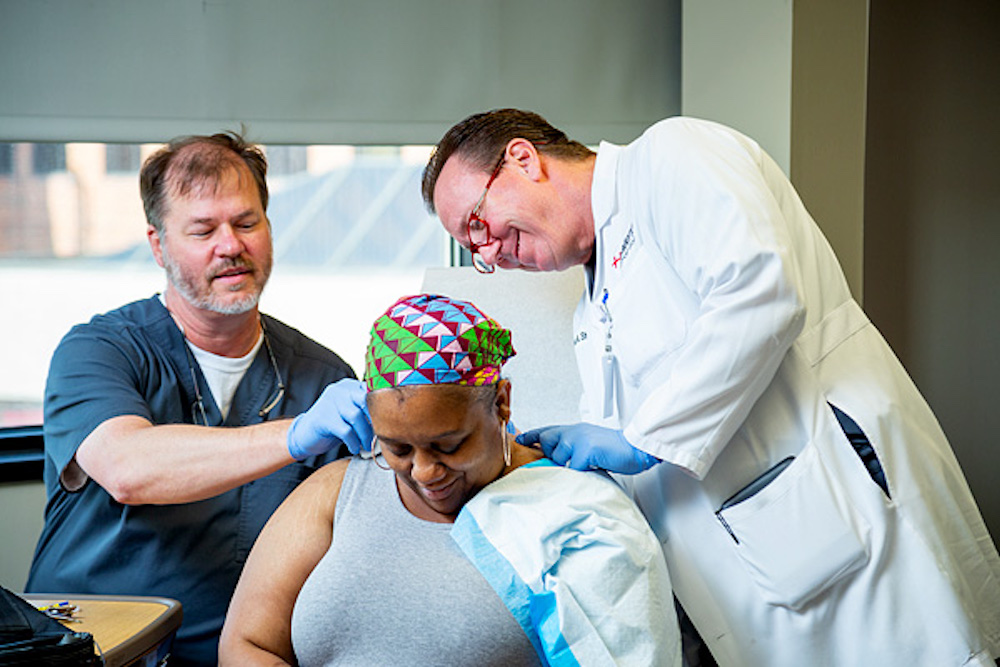
Common Wound Care Conditions and Treatments
Wounds that don’t heal normally, or which take unusually long periods of time to heal, can lead to dangerous complications, including pain and loss of function for patients who suffer with them. Chronic wounds typically fall into several categories: Diabetic foot ulcers, venous ulcers, pressure ulcers, crush injuries, surgical wounds and soft tissue and bone destruction from radiation therapy. If you’re searching for wound care in Kansas City, our team of experts can help.
Learn more about the wounds we help to treat.
Wounds that are slow to heal after surgery.
Meet Your Specialists
